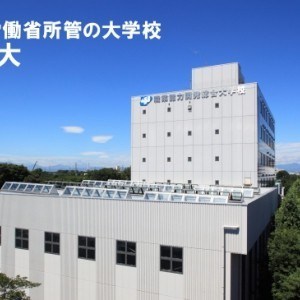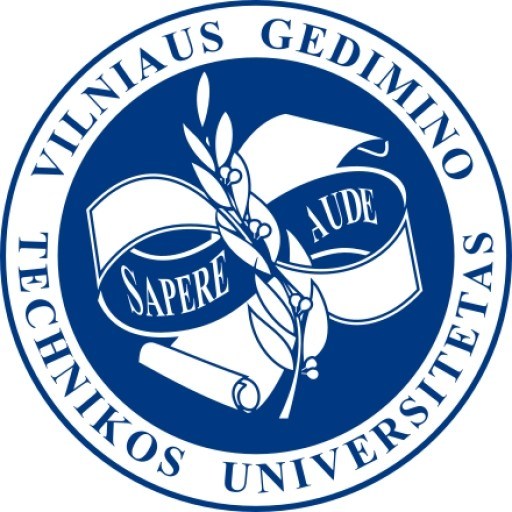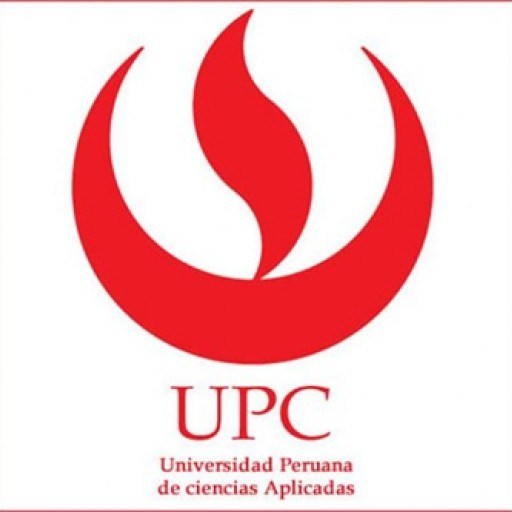Photos of university / #johnshopkinsu
The Johns Hopkins University offers a comprehensive and innovative program in Robotics designed to prepare students for the rapidly advancing field of autonomous systems, automation, and intelligent machines. This program combines foundational principles in engineering, computer science, and artificial intelligence with hands-on research experience, enabling graduates to develop advanced robotic systems capable of performing complex tasks across various industries such as healthcare, manufacturing, exploration, and defense. Students will explore core topics including robot kinematics and dynamics, control systems, computer vision, machine learning, sensor integration, and embedded systems. The curriculum emphasizes interdisciplinary learning, encouraging collaboration across departments and fostering a deep understanding of both the theoretical and practical aspects of robotics. Through coursework, laboratory work, and research projects, students gain proficiency in designing, programming, and deploying robotic systems in real-world settings. Opportunities for specializations include autonomous vehicles, humanoid robots, surgical robots, and industrial automation. The program is supported by state-of-the-art laboratories and facilities, such as the Johns Hopkins Robotics Laboratory, where students can work alongside leading researchers and industry specialists. Faculty members involved in the program are renowned experts in robotics, artificial intelligence, and related fields, guiding students through innovative research and development initiatives. The program aims to produce graduates who are not only skilled engineers but also innovative thinkers capable of advancing the state of robotic technology and addressing key challenges in automation and artificial intelligence. With a strong emphasis on research, practical application, and interdisciplinary collaboration, the Johns Hopkins Robotics program prepares students for leadership roles in academia, industry, and government agencies, driving forward the frontier of robotic capabilities and applications worldwide.
The Robotics program at Johns Hopkins University offers students a comprehensive education that combines fundamental principles of engineering, computer science, and applied mathematics to prepare them for the rapidly evolving field of robotics. This interdisciplinary program is designed to equip students with the theoretical knowledge and practical skills necessary to develop advanced robotic systems applicable in industries such as healthcare, manufacturing, autonomous vehicles, and space exploration. The curriculum covers core topics including robotics kinematics and dynamics, control systems, artificial intelligence, machine learning, computer vision, sensing technologies, and embedded systems. Students engage in hands-on laboratories and project-based learning experiences, allowing them to design, build, and program robots in real-world scenarios. The program emphasizes both hardware and software aspects of robotics, providing training in robotics hardware components, sensors, actuators, and microcontrollers, as well as programming languages such as Python and C++. Through collaboration with faculty from the Departments of Mechanical Engineering, Electrical and Computer Engineering, and Computer Science, students gain a multidisciplinary perspective essential for innovation in robotics. The program offers opportunities for research engagement, internships, and participation in robotics competitions, fostering a practical understanding of the field and facilitating industry connections. Graduates of Johns Hopkins Robotics program are well-prepared for careers in academia, research labs, tech companies, and startups focused on autonomous systems, medical robotics, and AI-driven automation. The program also encourages graduate-level studies and provides pathways for students interested in pursuing master's and doctoral degrees, supporting ongoing advancements in robotics technology. Overall, the Johns Hopkins Robotics program aims to develop proficient engineers and scientists capable of contributing to the development of intelligent, autonomous, and adaptable robotic systems that address real-world challenges and advance human capabilities.
Program Requirements for Johns Hopkins University Robotics Degree:
The Robotics program at Johns Hopkins University encompasses a comprehensive curriculum designed to equip students with foundational knowledge and practical skills in robotics engineering, artificial intelligence, control systems, and machine learning. Applicants are typically expected to have a strong background in mathematics, physics, and computer science. Prospective students must possess a bachelor's degree in engineering, computer science, or a related field from an accredited institution. Undergraduate coursework should include calculus, linear algebra, differential equations, programming (preferably in Python, C++, or MATLAB), and fundamentals of electrical and mechanical engineering.
Admission prerequisites emphasize prior research experience or project work related to robotics, autonomous systems, or related disciplines. Applicants are required to submit transcripts demonstrating academic excellence, letters of recommendation, a statement of purpose detailing their interest and goals in robotics, and GRE scores, although some programs may waive GRE submission under special circumstances.
The graduate program demands completion of core courses such as Introduction to Robotics, Control Systems, Machine Learning, Perception, and Autonomous Systems. Students are also required to choose specialized electives aligned with their research interests, including topics like Human-Robot Interaction, Robotics Sensors, and Embedded Systems. Laboratory work and team projects are integral components, fostering hands-on experience in designing, programming, and testing robotic systems.
Research components require students to engage in original investigations under faculty supervision, culminating in a thesis or a capstone project. Participation in seminars, workshops, and internships is highly encouraged to enhance practical competencies and industry readiness. In addition to coursework and research, students must maintain a minimum GPA as specified by the department, often around 3.0 on a 4.0 scale.
To graduate, students must also complete integrative assignments demonstrating knowledge across robotics disciplines and attend departmental evaluations. The program emphasizes interdisciplinary collaboration and innovation, preparing graduates for careers in academia, industry, or entrepreneurial ventures within the robotics field. Overall, the program's structure ensures graduates possess a balanced mixture of theoretical knowledge and applied skills necessary for advancing robotics technology.
The Robotics program at Johns Hopkins University offers a range of financing options to support students throughout their studies. Tuition fees vary depending on the specific graduate or undergraduate program within the robotics field, but generally, the university's tuition rates are competitive and reflect the high-quality education provided. For undergraduate students enrolled in robotics-related majors, financial aid packages may include institutional scholarships, need-based grants, and federal aid programs. Graduate students pursuing master's or doctoral degrees in robotics can access research assistantships, teaching assistantships, and fellowships, which often include tuition remission and stipends.
Johns Hopkins University is committed to providing financial assistance to talented students to ensure that their educational goals are attainable regardless of financial background. Prospective and current students are encouraged to explore multiple avenues of funding, including external scholarships and private grants specific to STEM fields. The university’s Office of Financial Aid provides comprehensive guidance on application procedures, eligibility criteria, and deadlines for various aid programs.
Partnerships with industry leaders in robotics and technology also facilitate internship opportunities and sponsored research projects that may include stipends and funding for eligible students. Additionally, Johns Hopkins offers loan programs for students who need additional financial support. The university’s funding resources are designed to reduce the financial burden associated with higher education and enable students to focus on their academic and research pursuits in robotics.
Students are advised to consult the financial aid office early in their enrollment process to understand the full scope of available funding, formulate financial plans, and maximize their eligibility for grants, scholarships, and assistantships. Overall, the program’s financing options are structured to support both in-state and out-of-state students, ensuring equitable access to the university’s cutting-edge robotics education.
The Johns Hopkins University offers a comprehensive program in Robotics, designed to prepare students for advanced careers in this rapidly evolving field. The program emphasizes interdisciplinary learning, combining principles from mechanical engineering, electrical engineering, computer science, and cognitive science to develop autonomous systems, intelligent machines, and sophisticated robotic devices. Students enrolled in the program gain hands-on experience with the latest technologies in robotics, including automation, machine learning, sensor integration, control systems, and artificial intelligence. The curriculum includes coursework in robot design, programming, perception, control, and collaboration, providing a strong theoretical foundation complemented by practical labs and project work. Research opportunities are available through collaborations with leading faculty in the Department of Mechanical Engineering, the Department of Electrical and Computer Engineering, and the Johns Hopkins Applied Physics Laboratory, where students can participate in cutting-edge projects related to autonomous systems and human-robot interaction. The program aims to equip graduates with both technical skills and innovative thinking required to address complex challenges in industries such as healthcare, manufacturing, aerospace, and defense. The university's state-of-the-art laboratories, including facilities dedicated to autonomous vehicles, robotic manipulation, and sensor technology, support student research and development. Additionally, students benefit from Johns Hopkins' strong network of industry partners and alumni, facilitating internships, collaborations, and employment opportunities post-graduation. The program encourages multidisciplinary teamwork and entrepreneurial initiatives, fostering a collaborative environment conducive to pushing the boundaries of robotic technology and application. Graduates of the Johns Hopkins Robotics program are well-positioned to contribute to advancements in autonomous vehicles, medical robotics, space exploration, and other emerging fields, making a significant impact on society through innovative robotic solutions.










